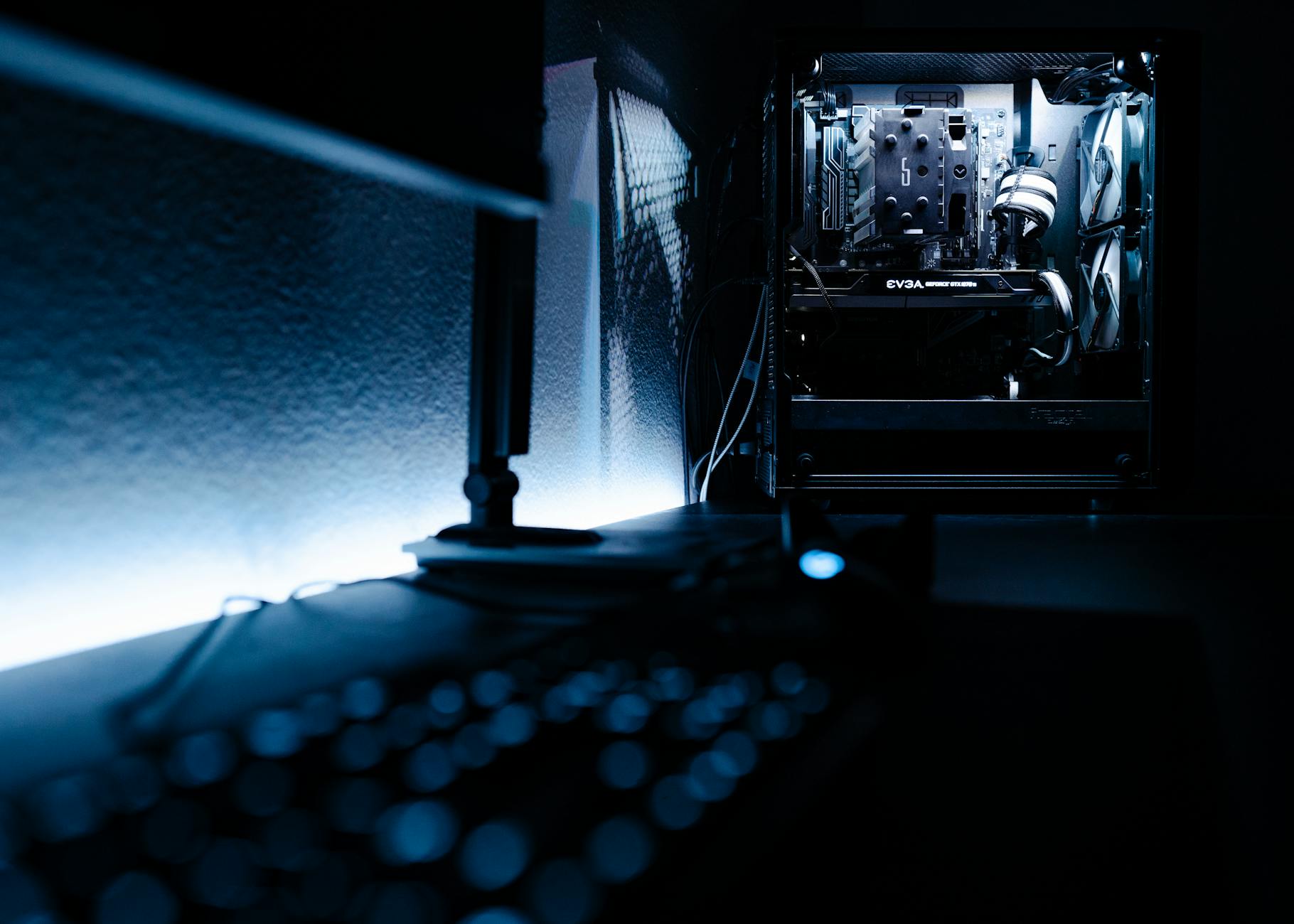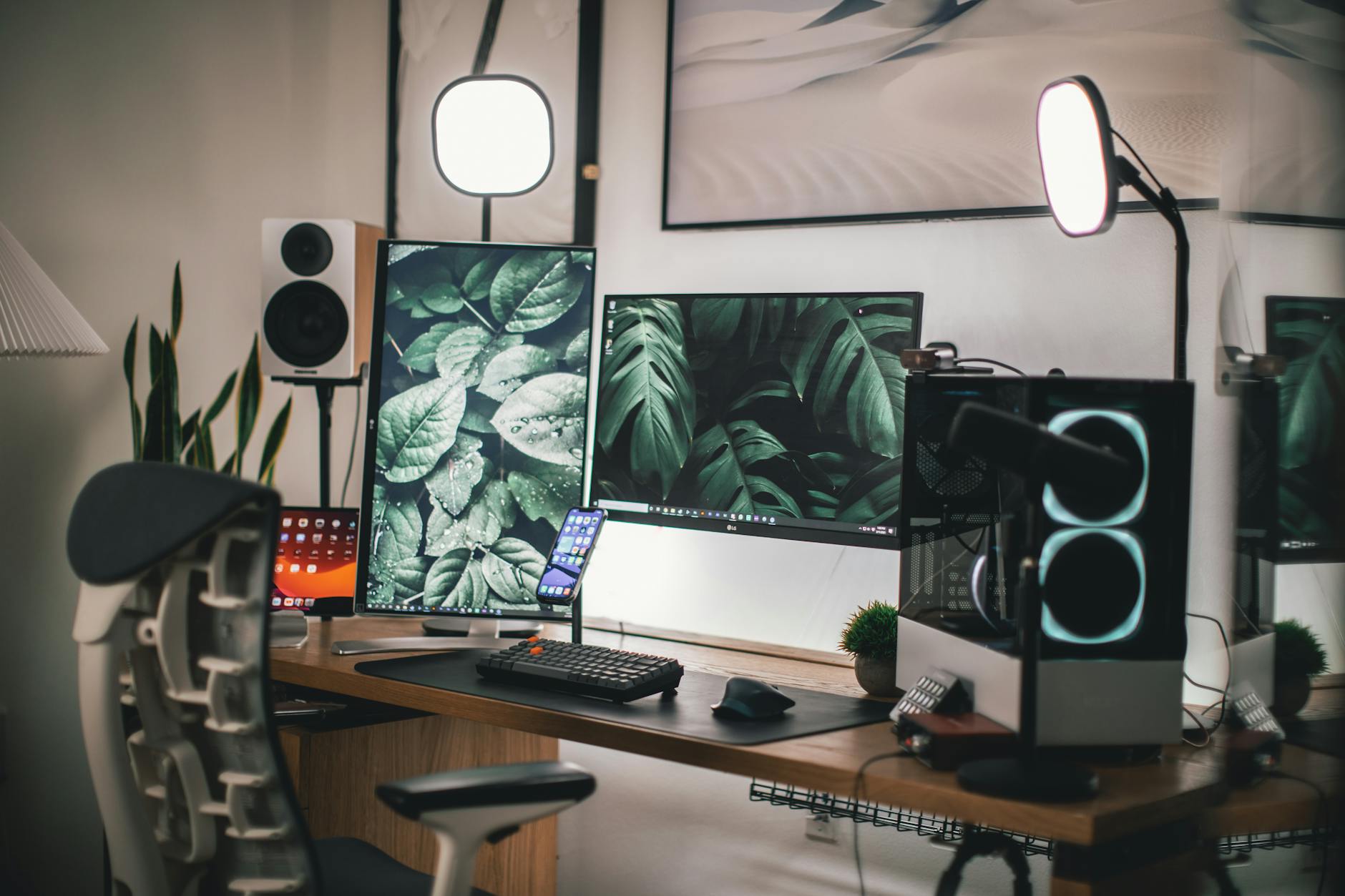How to Choose the Right Gaming PC: A Comprehensive Buyer’s Guide
Building or buying a gaming PC can be an exciting but daunting task. The sheer number of components and specifications can feel overwhelming, leading to confusion and potentially costly mistakes. This comprehensive guide will walk you through the essential considerations, helping you navigate the complexities of choosing the right gaming PC for your needs and budget. We’ll cover key components like the CPU, GPU, RAM, storage, and power supply, explaining their importance and helping you determine the best specifications for your desired gaming experience. From understanding resolutions and frame rates to choosing the right peripherals, we’ll provide the knowledge you need to make an informed decision and build or purchase a gaming rig that meets your expectations.
Choosing the Right Processor (CPU)
The CPU, or central processing unit, is the brain of your gaming PC. It handles all the calculations and instructions that make your games run. For gaming, you’ll want a powerful CPU with a high clock speed and multiple cores. Intel’s Core i5 and i7 series, and AMD’s Ryzen 5 and 7 series are popular choices. Higher core counts are beneficial for multitasking and more demanding games, but a higher clock speed generally translates to smoother gameplay at higher resolutions. Consider your budget and the games you plan to play when making your decision. More demanding titles will require a more powerful CPU.
Selecting Your Graphics Card (GPU)
The GPU, or graphics processing unit, is the most crucial component for gaming performance. It renders the images you see on your screen. Nvidia’s GeForce RTX and AMD’s Radeon RX series are the leading contenders. Higher-end GPUs offer better performance at higher resolutions and with higher graphical settings. Consider the resolution of your monitor (1080p, 1440p, 4K) and your desired frame rate (frames per second, or FPS) when choosing a GPU. A higher refresh rate monitor will require a more powerful GPU to maintain smooth gameplay.
Memory and Storage: RAM and SSD
Sufficient RAM (random access memory) is crucial for smooth multitasking and prevents lag. For gaming, 16GB of RAM is generally recommended, though 32GB is becoming increasingly popular for future-proofing and more demanding titles. Faster RAM speeds (measured in MHz) can also improve performance, particularly in games that are heavily reliant on memory access. Regarding storage, a solid-state drive (SSD) is highly recommended over a traditional hard drive (HDD). SSDs offer significantly faster loading times, resulting in a more enjoyable gaming experience. Consider the size of your game library when choosing the storage capacity.
Power Supply and Other Essential Components
The power supply unit (PSU) provides power to all components in your PC. It’s crucial to choose a PSU with sufficient wattage to handle the power demands of your CPU, GPU, and other components. Underpowering your system can lead to instability and damage. A reputable brand with an 80+ Gold or Platinum rating ensures efficiency and reliability. Other essential components include a motherboard (the main circuit board), a case (to house all components), and a cooling solution (to prevent overheating). Research compatibility before purchasing components to avoid any issues.
Conclusion
Choosing the right gaming PC involves careful consideration of several key components. The CPU provides processing power, the GPU renders visuals, sufficient RAM ensures smooth performance, and an SSD drastically improves loading times. Choosing a powerful yet efficient PSU is also vital. By carefully evaluating your budget, gaming needs (resolution, frame rate, and game types), and understanding the specifications of each component, you can build or purchase a gaming PC that delivers an optimal gaming experience. Remember to research component compatibility and consider future-proofing your system by selecting components that can handle demanding games for years to come. This guide provides a solid foundation for making informed decisions and enjoying your gaming PC for years to come. Don’t forget to factor in peripherals like a keyboard, mouse, and monitor for a complete setup.
| Component | Recommendation (Gaming) | Considerations |
|---|---|---|
| CPU | Intel Core i5/i7 or AMD Ryzen 5/7 | Higher core count and clock speed for better performance |
| GPU | Nvidia GeForce RTX or AMD Radeon RX | Depends on resolution and desired frame rate |
| RAM | 16GB or 32GB | Faster speeds (MHz) improve performance |
| Storage | SSD (500GB or more) | Faster loading times |
| PSU | 650W or higher (80+ Gold/Platinum) | Sufficient wattage for all components |
Image by: Martin Lopez
https://www.pexels.com/@mediocrememories


